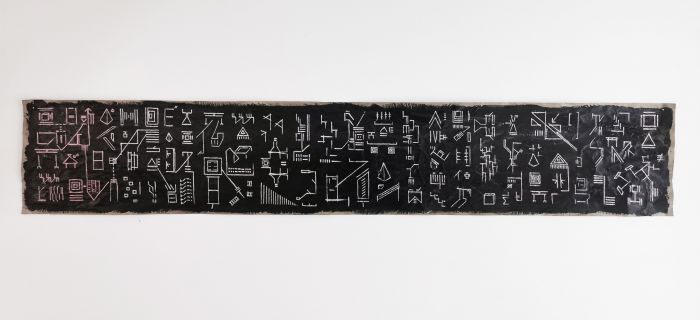

Richard Zeiss was born in Vienna, Austria, and lives in London, UK. He holds an MA in Fine Art from CSM (London) and an MPhil in Painting from the Royal College of Art (London). His practice is also informed by his earlier career in banking and by an MSc in Finance (Vienna University) as well as by an MBA (IESE Barcelona).
He has shown his work internationally, among other places at solo shows with Georg Kargl Fine Arts (Vienna), Gallery Asbæk/AAC (Copenhagen), and Da Wang Culture Highland (Shenzhen). He participated at the 2019 Lagos Biennial and had a “group show of one” with Razklon Gallery in Bulgaria (2021). He was featured at Frieze Art Fair (London), ARCO (Madrid), and AKAA (Paris). Richard has received Arts Council England’s International Research/Development grant as part of the collaborative duo Duck & Rabbit Projects with Arlene Wandera for their project in Johannesburg. In 2021, he was shortlisted for the Fondation François Schneider Purchase Prize for his 16mm film “For Agnes & The Sea (No.220)”.
Richard’s practice is one large phenomenological project that asks whether in addition to our established modes of perceiving in-the-world phenomena there exists a realm of “conceptual senses” that allows for a different form of perception. He is particularly interested in the thresholds where different modes rub against each other and break; for example, where visual perception turns into language or other forms of conceptual manifestation that arguably lie at the fringes of our phenomenal experience. In this context, he has found it helpful to look at the neurological condition of aphantasia, where patients cannot form images in their mind and find ways of substituting them.
In terms of process, he often uses semantically charged material to create fleeting, incomplete, or conflicting narratives that aim to undermine expected structures of perception and thought. His approach is multi-disciplinary, as he attempts to tackle his objectives across diverse media such as painting, installation, film, and writing. He has recently put a focus on data-driven fields like decentralized autonomous organisations (DAOs), neural networks, and AI, all of which raise interesting questions about how and where along the line the aesthetic manifests itself and how the non-aestheticised, conceptual end would (and indeed, could) be experienced.
- Website: http://www.richardzeiss.com
- Instagram: @richard_zeiss
- Collaborative project, Instagram: @duckandrabbitprojects
- Vimeo: https://vimeo.com/user26676973





